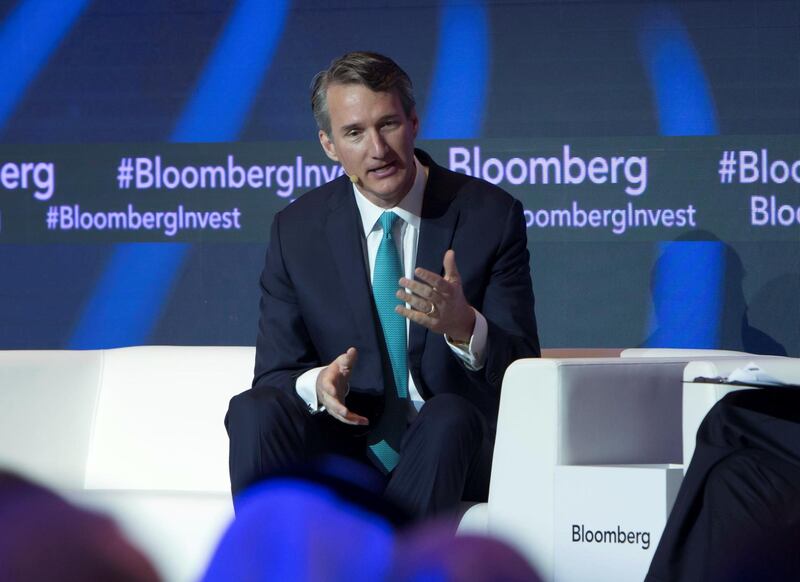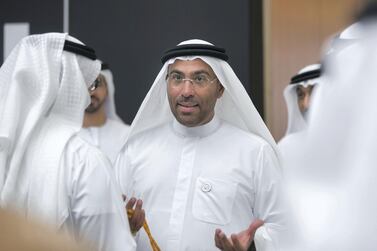Carlyle Group, one of the top private equity investors in the world, is upbeat about investments in the both conventional and renewable energy assets, as global demand for power rises.
“All areas [of energy] promise interesting prospects,” Glenn Youngkin, co-chief executive of The Carlyle Group, told the Bloomberg Invest conference on Wednesday in Abu Dhabi. “We are not discerning between old energy versus new energy but we are excited about all energies.”
The political momentum, however, remains on the side of renewable energy and economies across the globe are increasingly looking at greener options to meet their energy demands. That makes renewable assets “a very good place to invest over a very long time”, he said.
If global energy consumption continues to increase at the current 1.5 to 2 per cent every year, all forms of energy will grow. However, wind and solar could grow “10 times the rate of natural gas”, Mr Youngkin noted.
Global clean energy investment totalled $332.1 billion (Dh1.2 trillion) in 2018, a decline of 8 per cent on 2017. However, it broke the $300bn barrier for the fifth year in a row, according to figures published by research company Bloomberg NEF. Of global renewable generation capacity in 2018, hydropower accounted for the largest share with an installed capacity of 1,172GW, around 50 per cent of the total, according to the report from Abu Dhabi-based International Renewable Energy Agency. Wind and solar energy accounted for most of the remainder with capacities of 564GW and 480GW, respectively, while bioenergy accounted for 121GW, geothermal energy for 13GW and marine energy for 500MW.
Within the Arabian Gulf, the region’s two biggest economies - Saudi Arabia and the UAE - are leading the low-carbon economic agenda and cutting dependence on hydrocarbons for energy generation. The kingdom, the world’s largest oil exporter, has in particular tapped its sovereign investment fund, the Public Investment Fund, to develop around 70 per cent of all renewable projects in the country. Around 9.5GW of solar and wind capacities have been earmarked for development by 2023 alone.
In the UAE, Dubai’s Clean Energy Strategy 2050 calls for lowest carbon footprint in the world with clean energy accounting for 75 per cent of its total needs by 2050. Dubai Electricity and Water Authority also launched in 2016 a Dh100bn Green Fund, with capital contributions from founding investors from Dubai, and investment from the private sector, international banks and large investment companies to develop renewable projects.
At the moment, Mr Youngkin said there is continuous growth in the demand and need of energy of all types, adding that 40 per cent of power generation worldwide is still coming from coal.
“With the growing demand, you see an insatiable need of all kind of fuel resources,” he said.
Carlyle Group this week bought a significant minority stake in Spanish oil and gas firm Compania Espanola de Petroleos (Cepsa) from Mubadala Investment Company and Mr Youngkin said gas, in particular “is not just a transitional fuel; it will continue to be at the centre of the growth value for years".
“Think about today - 10 per cent of power production is done by renewables and 40 per cent is done by coal,” he noted.
“The only way to shift away from coal to anything in a reasonablly clear time is to ensure the construction of gas infrastructure ... that’s why we think LNG infrastructure, gas generation power capacity along with solar and wind are great points to invest.”







